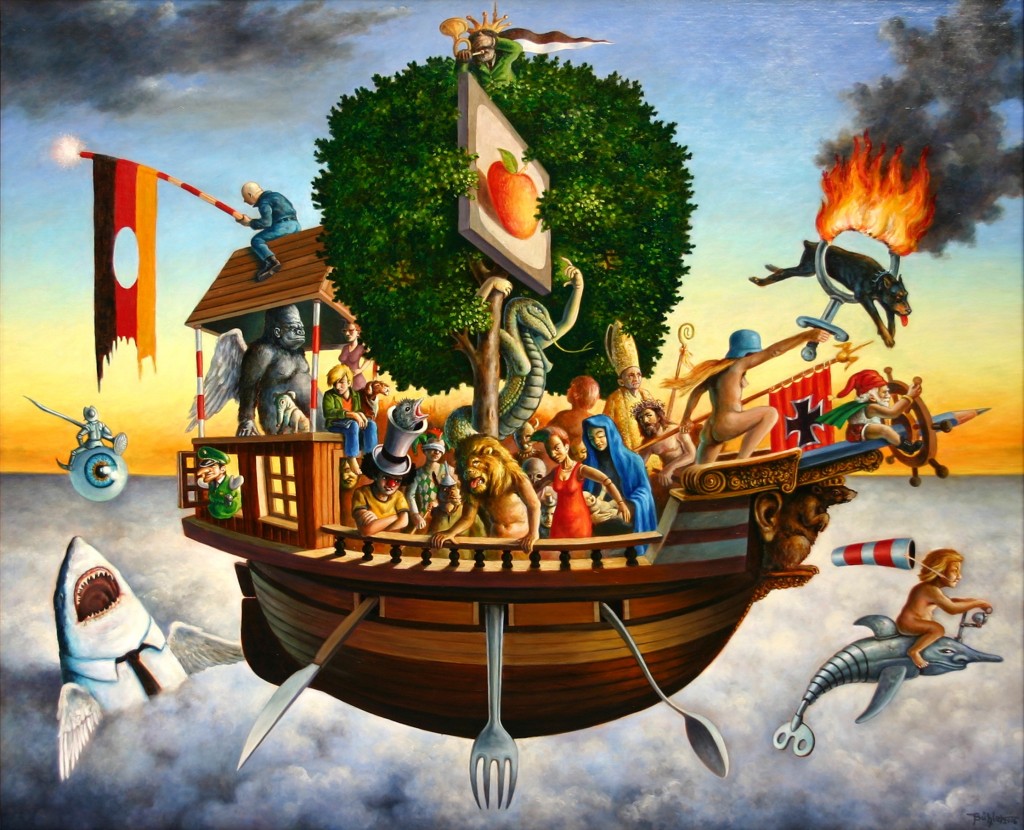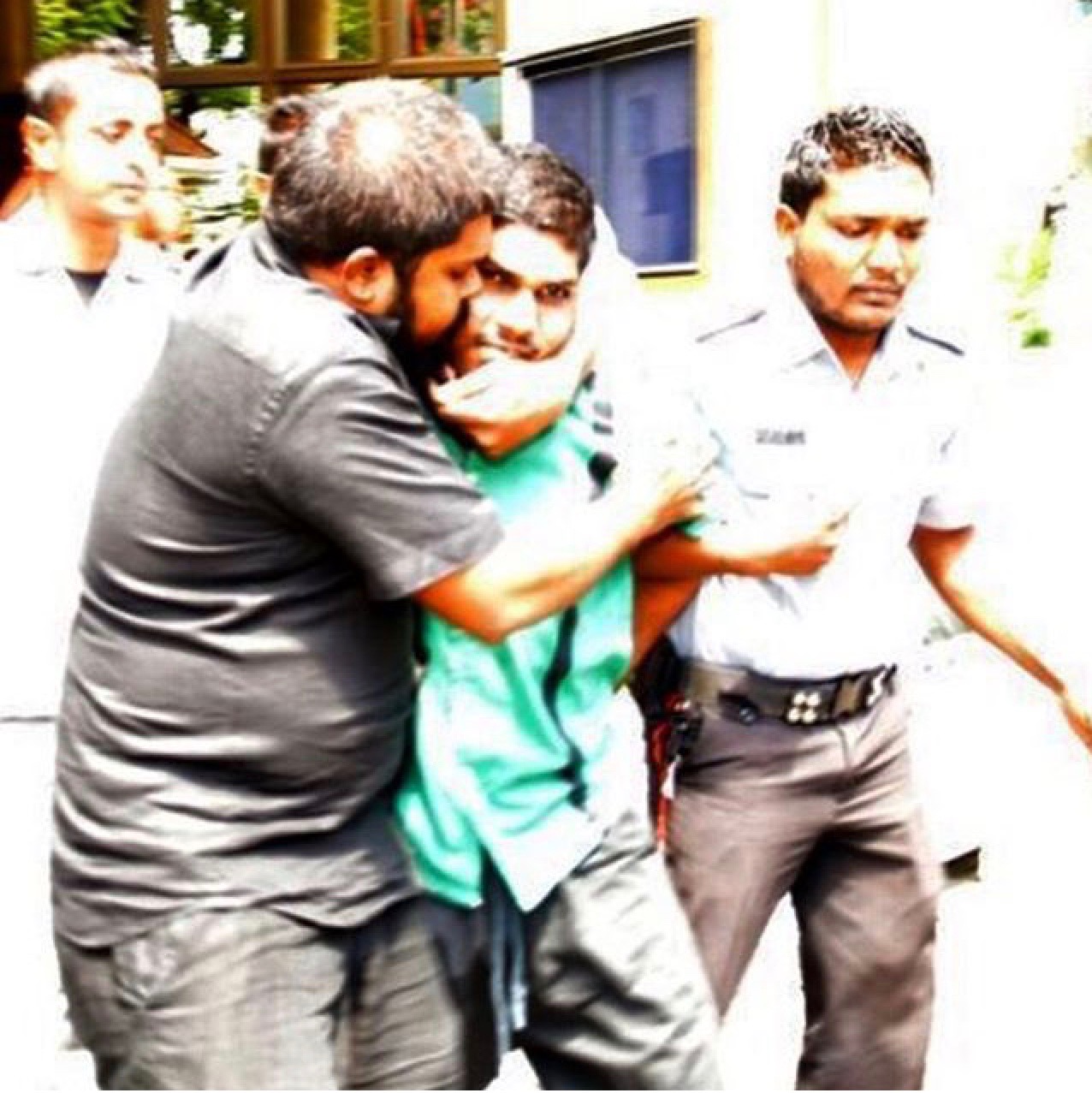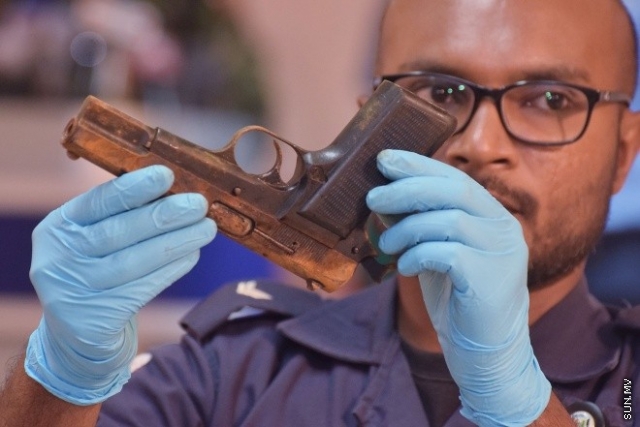A tale of many fools

by Azra Naseem
I am a bit hesitant to say anything.
President Yameen has warned that women who defame others may well find themselves forced to pay out their monthly MVR50,000 salon allowance into government coffers as a fine for tarnishing his stellar reputation. Neither I, nor any woman I have ever met—and I am pretty sure any I will ever meet would—have that kind of money to spend on a monthly visit to the salon. So I will dismiss this threat.
The President has also said, though, that if you can’t dish out the cash, you will have to pay your dues by sitting in a cell for however long it takes to remove the stain from his otherwise unblemished good name. And, as Foreign Minister Dunya Maumoon has explained to the world, just because you are politically active, doesn’t mean you are a political prisoner when you end up in jail for criticising politicians. Which means I can’t just pack my ‘pillow and mat and run off to a foreign ambassador’ for help, or hide out in 10 Downing Street until Ian Paisley Jnr MP rats me out.
All this would ordinarily put me in a dangerous position if I am to say what I am going to say.
But, since I am ‘a Western puppet’, and have found safe harbour in a country that I reckon would be quite happy to never again have to listen to anything the Paisleys have to say, I will risk it:
have you in recent days heard of anything more ridiculous than President Yameen being bestowed with this ‘Kalam Award’ for ‘good governance’?
Let’s unpack that.
The award is being given in the name of the late Dr A.P.J. Abdul Kalam, President of India from 2002 to 2007. A scientist the country is rightfully proud of. A national hero. The government of the state of Tamil Nadu bestows an award in his name in recognition of individuals who make significant contributions towards scientific development, humanities and student welfare. The first such award was given last year to Indian Space Research Organisation (ISRO) scientist N. Valarmathi who led the team that successfully launched India’s Radar Imaging Satellite RISAT-1 in 2012.
The ‘Kalam Award’ President Yameen received today has no relation to the Tamil Nadu government award, nor does it have any relation to any official Indian authority. It is being handed out by a drugs rehabilitation centre in Kerala called Dale View. The only publicly knowable connection between Dr Kalam and the rehab is a visit by the late Professor to the rehabilitation centre in February 2015, most likely as part of his many social and humanitarian works.
Many questions come begging: how/why is an obscure rehabilitation centre in rural India judging the quality of governance in a foreign country? What is Yameen’s connection to a rehabilitation centre in Kerala? Why is this award a matter of national importance and celebration?
Question number one: Dale View is not qualified to judge President Yameen’s, or any other President’s governance record for obvious reasons. It is a rehab, not an institute of foreign relations or governance or diplomacy or public policy or any related field. At least not by any universally recognised standards of measure.
On question number two, many speculative answers are floating about on social media. They have to do with the supply of pharmaceuticals, the State Trading Organisation, and Yameen. I am not going to repeat them here, lest I have to forgo a blusher or eyeliner this month.
Some of the possible answers to question number three are what’s really bugging me. Why is this award a matter of national importance and celebration?
Why President Yameen is making this a big deal is easy to understand, seasoned diplomats say.
@Manje @KerafaNaseem nothing new in dictatorships. Next stop, self-awards. Will come soon enough. Just a matter of time before he does it.
— Farah Didi (@FarahDidi) April 27, 2016
We can expect more glorious awards of the same ilk for the Dear Leader.
@Manje @KerafaNaseem The Most-Esteemed Economist President of the World’s Most Infant Democratic Republic of Maldives. — Farah Didi (@FarahDidi) April 27, 2016
What about the people who are cheering him on, cultivating this narcissism and bowing in adulation before the foisting of an over-inflated ego on everyone? They are the piece of the puzzle that makes absolutely no sense. What kind of a trance are people in that they unquestioningly and ecstatically celebrate an award handed to Yameen for inexplicable reasons by a group totally unconnected to the field in which the award is being given, or to the person in whose name the award is being conferred?
Given the dictatorial tendency for self-promotion and self-celebration, it’s not surprising that the official website of the presidency has already issued at least four press releases on the subject. Nor is it surprising that his personal media outlet, without even a trace of self-awareness named Public Service Media, has been more or less live-tweeting the event complete with pictures of the president wearing sunglasses indoors.
Photo Gallery: Raees Yameen India’ge Thiruvananthapuram ah vadaigathun..https://t.co/DwImZGGncX pic.twitter.com/fDnSEVSEtx
— News (@PSMnewsmv) April 26, 2016
His two spokesmen–one who attempts to present the President’s words in a way that makes sense in Dhivehi, and the other to present them in a way the English-speaking world finds acceptable—have been pretty busy too. Like I said, that’s to be expected. But the rest? For example: Supposedly well-educated MPs
Dear President, We have full confidence that you will take Maldives to prosperity. The Maldives is proud of you! pic.twitter.com/gRjYdzYabl — Dr Abdullah Khaleel (@abkhaleel) April 27, 2016
The educated, well-travelled and sophisticated Ms Dunya Maumoon
The first ‘Dr. Kalam Puraskar for Excellence in Governance’ award to be conferred to President Yameen. Congratulations to HEP – FM Dunya
— MFA-Maldives (@MDVForeign) April 26, 2016
The buffoons in Parliament
Congratulations President Yameen ! pic.twitter.com/aEMriP47vA — Riyaz Rasheed (@riyaz_rasheed) April 27, 2016
The bevy of social media minions employed to sprout filth as counter-argument
@Manje feley hama feley thibegen kuraane masakkatheh nethifa thibey iru geydhoru saafu kola bala, anhenunney kiyaa thibi an kiyaafa*****!
— almarasad (@fehigeyar) April 27, 2016
General ordinary members of PPM
Emmeney Enmeney Raees Yameen Award libigen. Ekamaa dheravegen MDP Hajam Nuvaa grp Ithurah Moya vegen 2 Meehaku Dhuniyein rangalha Moyavejje — KEVIN (@kevincosna) April 27, 2016
Congratulations Mr. President. The First Recipient of Dr, Kalam Smrithi Int Excellence Award.#RaeesYaameen2018 pic.twitter.com/HDU8ixV6ol
— Azhan Ibrahim (@Azhan_Yth) April 16, 2016
‘Dr.Kalam Puraskar for Excellence in Governence’ award raees yaameen ah libumun fithunu enmenah v salaam.. Fihthaalaigen thibey. ☝️
— #Dhenlalala7 (@maurish24) April 27, 2016
And late onto the bandwagon, but by no means the last, President of PPM, Maumoon Abdul Gayoom, who knows better
Congratulations President on receiving Dr Kalam Puraskar Award! — Maumoon Abdul Gayoom (@maumoonagayoom) April 27, 2016
What has happened to us all?
Unlike Dunya, who more or less said, “Frankly, my dear, I don’t give a damn” about the 49% of the population who did not vote for my government in the last election, I can’t stop sparing a thought or too to the 51% who (according to the Supreme Court) did.
We can’t get away from the fact ‘they’ are us. We are all in this together. Besides, things have changed since the ancient European practice of fools being put on ships, The Narrenschiff, and made to sail off into the vast horizon yonder. That’s not an option now, even in an ‘infant democracy’ where everything is different from grown up democracies.
Fact is, the only way to avoid being made to look (and be) the fool—which is what we look (and many of us feel) today as the president prepares to return home with his trophy award—we must find a way somehow to introduce people to the radical idea of thinking. Democracy cannot take hold among sheep.
Updates:
As I published, preparations were getting underway to welcome the president and his trophy. The silly season is set to stay a while.
@Manje getting ready to receive HEPY pic.twitter.com/JyDsOlcYcf
— Munshid (@dyingregime) April 27, 2016
13:52 Loyal MPs slaving away to welcome the trophy, and ‘HEPY’ (Pet name: His Excellency President Yameen)
#Ummeedhu
Raees ah Marhaba dehnnevumuge fahuge thayyaaree thah #RaeesYameeen2018 pic.twitter.com/IloHo8oyi2— Ahmed Shafeeg (@Shappey4439) April 27, 2016
19:10 The trophy and the President are expected in less than half an hour. Will the unbridled joy be contained by the tight security measures? Hard to know.
@Manje ready to receive HEPY final countdown, soldiers with guns, security gate & lights check pic.twitter.com/o19Bfd6DWw — Munshid (@dyingregime) April 27, 2016
@mushfique_@Manje wonderful atmosphere here, stelco directors connecting light bulbs, soldiers herding out everyone from JM. HEPYness
— Munshid (@dyingregime) April 27, 2016
20: 34 So called Public Service Media has stopped streaming Live coverage of the incident, unable to handle mockery on social media. Here’s the latest:
HEPYs plane carrying the prestigious award that Obama or Clinton didn’t get makes it way towards the apron.
— Munshid (@dyingregime) April 27, 2016
20:45 Plane has landed. You can see the flag waving young school children ordered to come to the airport to welcome the president.
Raees Yameen, India’ge Thiruvananthapuram ah kurehvi dhathurufulhah fahu Raajje vadaigenfi. pic.twitter.com/LaFdhbYvmI
— News (@PSMnewsmv) April 27, 2016
20:57 Cabinet Ministers tripping over themselves to serenade
Due to this award there would be tremendous increase in tourist arrival from India. Says tourism minister Zameer FYI @DevirupaM not kidding
— Munshid (@dyingregime) April 27, 2016
20:05 The joy of it all seems to be overwhelming supporters of HEPY.
Rave on its a rave. Everybody got pills
— Munshid (@dyingregime) April 27, 2016

